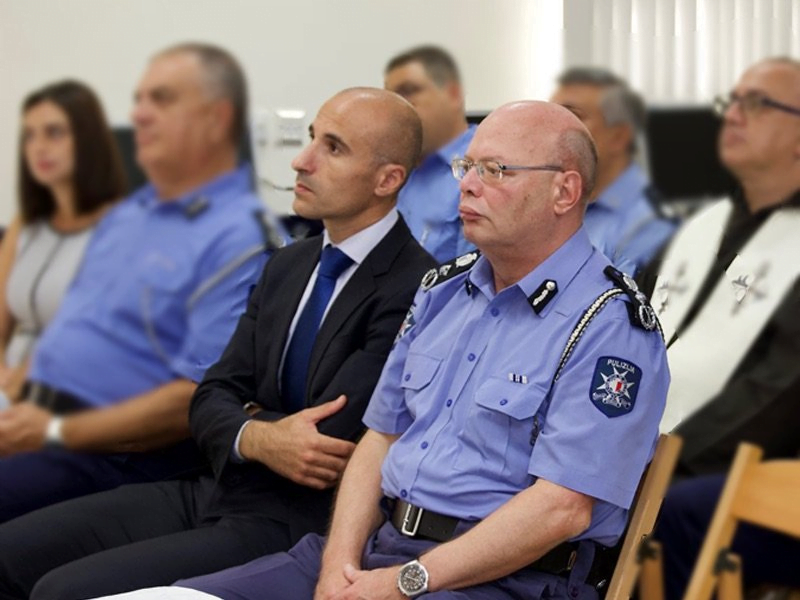High ranking officers in the police force who also hold a law degree, usually gained on the public’s time, are being allowed to work as lawyers on a part time basis when not on duty, The Shift is informed.
This unprecedented arrangement, which opens the possibility for serious conflicts of interest, was introduced by disgraced former police commissioner Lawrence Cutajar two years ago. The decision received the blessing of Angelo Gafa, CEO at the time and now handpicked as the new police commissioner.
The Shift is informed that the list of those given this ‘special permission’ to defend clients charged before the courts, while still serving as law enforcement officers, includes a deputy police commissioner, assistant commissioners and other superintendents and inspectors involved in very sensitive investigations and prosecutions.
In recent years, a number of police officers were given permission by their superiors, including special leave, to follow full time university courses, particularly in law, to acquire knowledge that would enhance the performance of their duties in the police force.
While some of those who acquired their degree on police-paid time left the force soon after graduating, opening up their own legal practices, others remained in the force requesting that they work as private lawyers when not on duty.
Some at the top of the ranks in the police force had resisted this move due to obvious conflicts of interest, but things changed when Cutajar and Gafa took over.
A police Board was actually appointed in 2018 to consider these applications from police officers who wanted to conduct other services for clients, opening up the option for police officers to defend individuals against offences they were charged with by the Force that employed their officers as lawyers.
The Board was chaired by then CEO Angelo Gafa, and had the Deputy Commissioner at the time Carmelo Magri (who was acting police commissioner between Cutajar’s resignation and Gafa’s appointment) and Assistant Commissioner Ramon Mercieca as members.
The Shift is informed that some police officers have even set up offices to meet clients for their legal practice, while others are employed as part-timers in legal firms that also defend clients involved in criminal offences.
Law enforcement experts who spoke to The Shift described the situation as ‘legal blasphemy’.
“This is really unbelievable,” a former high-ranking police officer said.
“So, now we have an officer receiving reports on alleged abuses and illegal activities in the morning, and in the afternoon the same officer meets his clients to defend them in court. Imagine you were on the other side. A police officer is on duty even when off duty,” he said, citing a fundamental principle drilled into every officer.
A legal expert explained this meant what while the lawyer/police officer who has access to all information in the police incident registration system could act as counsel to parties in say proceedings, the same agent acted as a police officer while on duty.
“This can only happen in rogue countries.”
The reputation of the Maltese police force has been in steady decline since Labour was returned to power in 2013, with an unprecedented number of police commissioners (seven) that account for a change in almost every year that the Party has been in government has been mired in corruption scandals.












